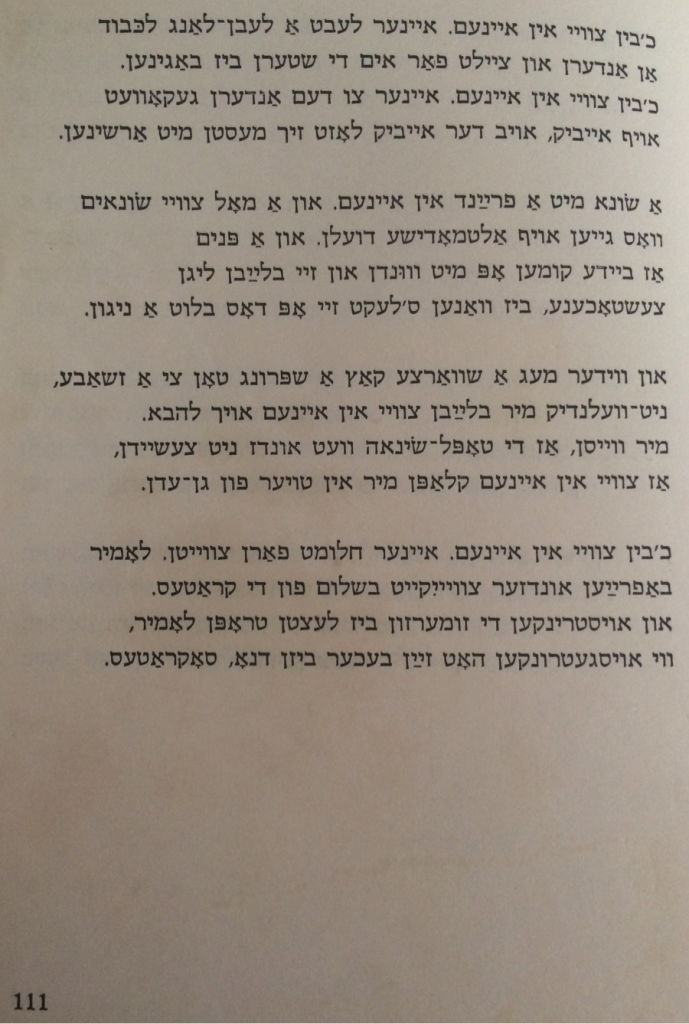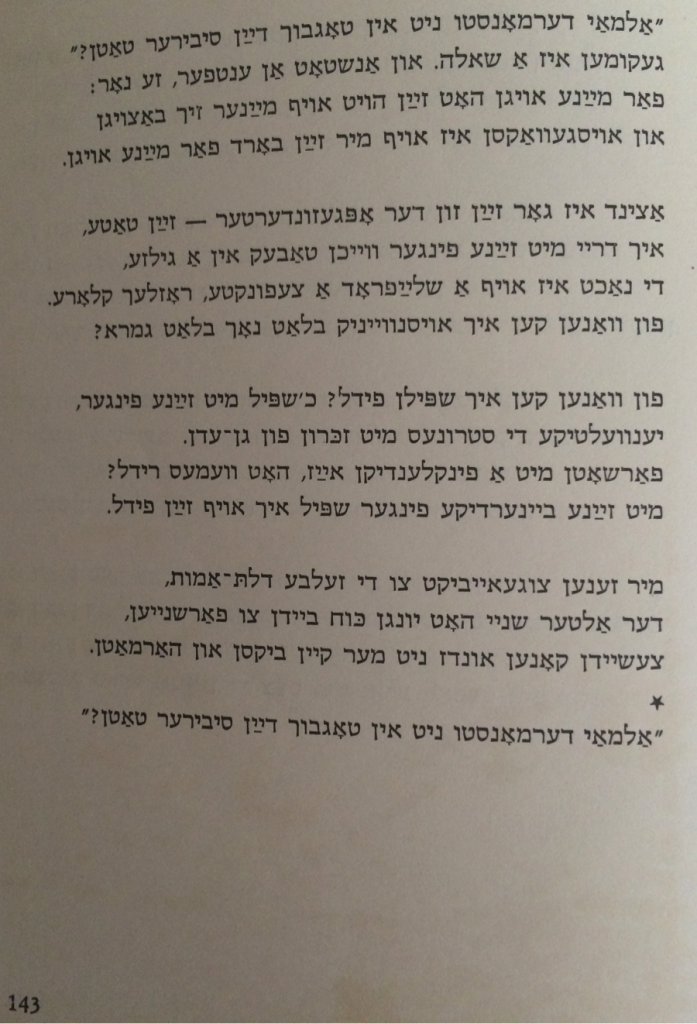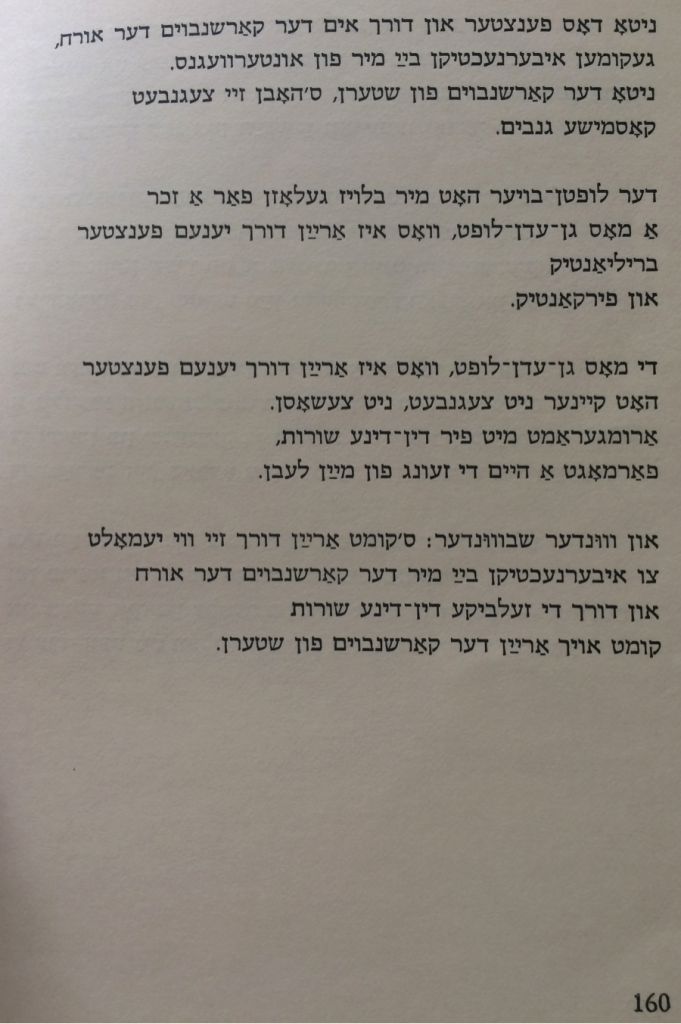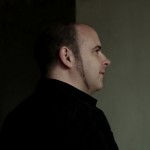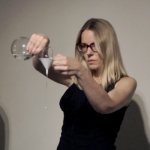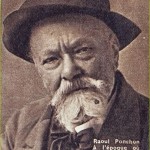Four poems by Sohrab Sepehri translated by Patrick Sykes
هم سطر، هم سپيد
by Sohrab Sepehriصبحاست.
گنجشكمحض
ميخواند.
پاييز،رويوحدتديوار
اوراقميشود.
رفتارآفتابمفرح
حجمفسادرا
ازخوابميپراند:
يكسيب
درفرصتمشبكزنبيل
ميپوسد.
حسيشبيهغربتاشيا
ازرويپلكميگذرد.
بيندرختوثانيهسبز
تكرارلاجورد
باحسرتكلامميآميزد.
اما
ايحرمتسپيديكاغذ !
نبضحروفما
درغيبتمركبمشاقميزند.
درذهنحال،جاذبهشكل
ازدستميرود.
بايدكتابرابست.
بايدبلندشد
درامتدادوقتقدمزد،
گلرانگاهكرد،
ابهامراشنيد.
بايددويدنتاتهبودن.
بايدبهبويخاكفنارفت.
بايدبهملتقايدرختوخدارسيد.
بايدنشست
نزديكانبساط
جاييميانبيخوديوكشف.
Both line and white
by Sohrab SepehriIt’s morning.
The sparrow
only sings.
On the downright wall, autumn
leaves.
The sun acts all fresh
jumps a given volume
of decay from sleep:
an apple
wears away at the chance
of a perforated basket.
A feeling like things astray
passes over the eyelid
between trees and the green second
azure repetition
speech falls in with regret.
Yet
white reverence of paper!
Pulse of our words
drags in the distance of ink
in the mind, form’s gravity
goes to waste.
One must close the book
get up take measures to prolong time,
look at the rose,
hear its indeterminacy.
Run to the end.
Ro to ruin for the smell of earth.
Arrive at the conflation of God and the trees.
Sit
close to expansion
somewhere between rapture and revelation.
translated from Farsi-Dari by Patrick Sykesوقت لطيف شن
by Sohrab Sepehriباران
اضلاع فراغت را مي شست.
من با شن هاي
مرطوب عزيمت بازي مي كردم
و خواب سفرهاي منقش مي ديدم.
من قاتي آزادي شن ها بودم.
من
دلتنگ
بودم.
در باغ
يك سفره مانوس
پهن
بود.
چيزي وسط سفره، شبيه
ادراك منور:
يك خوشه انگور
روي همه شايبه را پوشيد.
تعمير سكوت
گيجم كرد.
ديدم كه درخت ، هست.
وقتي كه درخت هست
پيداست كه بايد بود،
بايد بود
و رد روايت را
تا متن سپيد
دنبال كرد.
اما
اي ياس ملون!
Stint of pure sand
by Sohrab SepehriRain
scrubs down leisure’s ribs.
I, with damp
sand playing incantation
saw an illuminated dream of distance.
I was the sand’s cross of freedom.
I
missed.
In the garden
was a familiar table
broad.
Something in the middle, like
rich comprehension:
A bunch of grapes
veiled all doubt.
The overhaul of silence
rattled me
I saw the tree there.
when it must have been,
must have been,
must
and reject the narrative
till the blank text
follows.
Yet
jasmine melody!
translated from Farsi-Dari by Patrick Sykesاز روی پلک شب
by Sohrab Sepehriشب سرشاري بود.
رود از پاي صنوبرها، تا فراترها رفت.
دره مهتاب اندود، و چنان روشن كوه، كه خدا پيدا بود.
در بلنديها، ما
دورها گم، سطحها شسته، و نگاه از همه شب نازكتر.
دستهايت، ساقه سبز پيامي را ميداد به من
و سفالينه انس، با نفسهايت آهسته ترك ميخورد
و تپشهامان ميريخت به سنگ.
از شرابي ديرين، شن تابستان در رگها
و لعاب مهتاب، روي رفتارت.
تو شگرف، تو رها، و برازنده خاك.
فرصت سبز حيات، به هواي خنك كوهستان ميپيوست.
سايهها برميگشت.
و هنوز، در سر راه نسيم.
پونههايي كه تكان ميخورد.
جذبههايي كه به هم ميخورد.
From the lid of night
by Sohrab SepehriNight was brimming,
the river climbing from the foot of the pines.
The moon-gilt valley, and the mountain so bright that God was exposed.
Us at the heights.
In turns vanished, the surface scrubbed, and a glance slimmer than any night.
Your hands were giving me word of the green shoot,
pots breaking with your slow breath
and my pulse cast in stone.
From an old wine, summer sand in the veins
and moongaze on your ways.
You wonder, at liberty, befitting the earth.
The green shot in the courtyard, yoked to the cool air.
Shadows were returning
and the breeze still on the way,
mint that would yield
brimming colour.
translated from Farsi-Dari by Patrick Sykes
رو به غروب
by Sohrab Sepehriريخته سرخ غروب
جابجا بر سر سنگ.
كوه خاموش است.
مي خروشد رود.
مانده در دامن دشت
خرمني رنگ كبود.
سايه آميخته با سايه.
سنگ با سنگ گرفته پيوند.
روز فرسوده به ره مي گذرد.
جلوه گر آمده در چشمانش
نقش اندوه پي يك لبخند.
جغد بر كنگره ها مي خواند.
لاشخورها، سنگين،
از هوا، تك تك ، آيند فرود:
لاشه اي مانده به دشت
كنده منقار ز جا چشمانش،
زير پيشاني او
مانده دو گود كبود.
تيرگي مي آيد.
دشت مي گيرد آرام.
قصه رنگي روز
مي رود رو به تمام.
شاخه ها پژمرده است.
سنگ ها افسرده است.
رود مي نالد.
جغد مي خواند.
غم بياويخته با رنگ غروب.
مي تراود ز لبم قصه سرد:
دلم افسرده در اين تنگ غروب.
To Dusk
by Sohrab SepehriDusk spilled redhot
displaced stone.
The mountain silent.
The river roars.
Left in the skirt of the field
the azure harvest.
Shadow alloyed with shadow.
Stone with stone.
The washed-up day moves on
in all its beauty, and its eyes
play sorrow in a smile.
From the battlements the owl sings
the vultures down
from the air, one by one:
a carcass left in the field
a beak rends eyes from their place,
below the brow
two azure pits.
Darkness closes.
The field takes comfort.
The story of the colour of day
comes to an end.
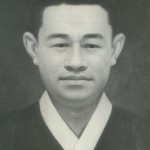

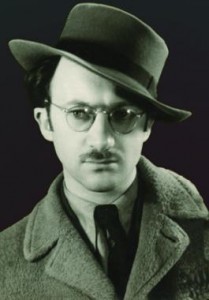
 ed edition of his collection Poems from My Diary, published in 1985.
ed edition of his collection Poems from My Diary, published in 1985. 